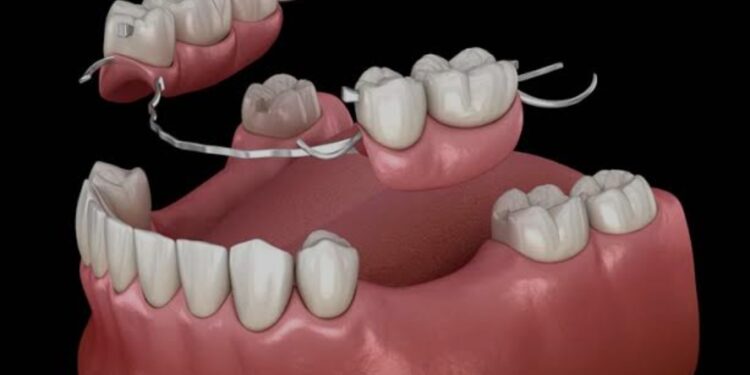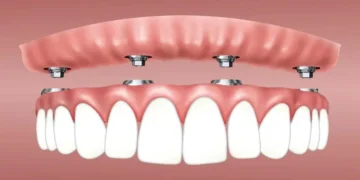Losing teeth can be a distressing experience, impacting our appearance and our ability to chew and speak comfortably. Fortunately, advancements in dental technology have provided us with solutions to restore our smiles and functionality. Two common remedies for tooth loss are full and partial dentures. These prosthetic devices are designed to replace missing teeth, yet they differ in their application and purpose, catering to varying degrees of tooth loss.
Full Dentures: Complete Restoration
Full or complete dentures are a comprehensive tooth replacement option for individuals who have lost their natural teeth in either the upper or lower jaw or both. Crafted from acrylic and sometimes combined with metal attachments for stability, complete dentures are custom-made to fit comfortably over the gums, restoring aesthetics and functionality.
Key Features of Full Dentures:
- Designed to replace a complete set of upper or lower teeth
- Made from durable materials
- Custom-fitted to the patient’s mouth
- Supported by the gums and sometimes dental adhesives for stability
Partial Dentures: Tailored Solutions
Partial dentures are removable appliances that replace one or more missing teeth when some natural teeth remain in the mouth. They consist of a framework made of metal or acrylic that attaches to existing teeth, holding the prosthetic teeth securely in place.
Key Features of Partial Dentures:
- Designed to replace a few missing teeth
- Attaches to remaining natural teeth for support
- Custom-made for a precise fit
- Made from durable materials like metal or acrylic
Care and Maintenance for Dentures
- Daily Cleaning Routine: Regardless of whether you have full or partial dentures, proper care and maintenance are crucial for their longevity and your oral health. Experts in Full & Partial Dentures Tarzana will guide you on correctly cleaning your dentures.
- Cleaning: Remove dentures after meals and clean them thoroughly using a soft-bristle toothbrush and mild soap or denture cleaner. Avoid using common toothpaste as it can be coarse and damage the denture surface.
- Soaking: Soak dentures overnight in a cleaning solution specially designed for dentures or water. This keeps the dentures moist and prevents warping. This step helps to remove stains and bacteria.
- Handle with Care: Always handle dentures carefully to avoid dropping or damaging them. Place a towel or soft surface on the counter when taking them to prevent breakage if accidentally dropped.
Regular Dental Check-ups:
Schedule regular appointments with your dentist to ensure your dentures fit and are in proper condition. Your dentist can adjust if necessary and check for any signs of wear or damage.
Avoiding Damage:
To maintain the integrity of your dentures, avoid using hot water, which can cause warping, and refrain from biting on hard or sticky foods that may damage them. Additionally, do not try to adjust or repair dentures yourself; seek professional assistance from your dentist if needed.
Full and partial dentures serve as invaluable solutions for individuals coping with tooth loss, offering restored aesthetics and improved functionality for everyday activities such as eating and speaking. Understanding the differences between these prosthetic options and adhering to proper care and maintenance routines are pivotal in ensuring their durability and your continued oral health. By following these guidelines and seeking professional dental care, individuals with dentures can enjoy a confident smile and enhanced quality of life.


 Home
Home









